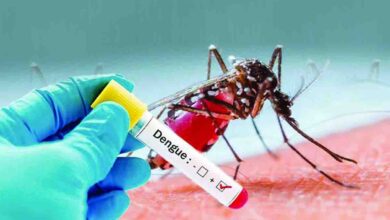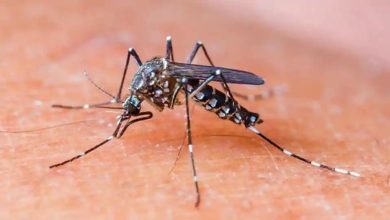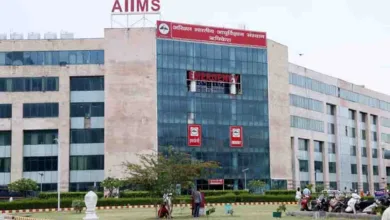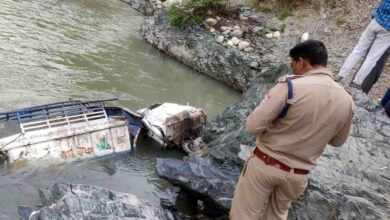Second phase of Bihar polls holds the key

94 seats in this round to seal fate of Tej, Tejashwi, Nitish’s Ministers
In an election fought by the participants with the aggressiveness of a real war, every seat and every phase matters, and yet the second round of the battle of Bihar holds far greater significance than the other two phases.
After all, the Tuesday’s second phase has the highest number of seats, 94, at stake. The round will also decide the fate of Grand Alliance chief ministerial candidate Tejashwi Yadav, who is contesting from Raghopur in Vaishali.
The round is most crucial for the RJD, which had won 33 of the 42 seats it contested in 2010 polls in alliance with the JD(U) and Congress. The JD(U) had won 30 seats. On the other hand the BJP won 20 of the 63 seats it contested in 2010.
The RJD has 56 candidates in the fray this phase, the BJP 46, the JD(U) 43, the RLSP 36 and the Congress 24. CPI, CPI(M-L) and CPI(M) are contesting 14 seats. Mukesh Sahini-led Vikasheel Insaan Party (VIP), an ally of the NDA, is contesting 5 seats out of total 11 seats allotted to them.
While Tejashwi Yadav is in the fray from Raghopur in Vaishali, his mercurial brother Tej Pratap is contesting from Hasanpur in Samastipur districts. Tej Pratap won from Yadava-dominated Raghopur in 2015. Incidentally, his mother and former Bihar Chief Minister Rabri Devi had lost from there in 2010. Tejashwi should easily retain his seat, but Tej Pratap has a tough contest on his hand against two-time sitting MLA Rajkumar Rai of JD(U).
On 18 seats, or one in every, the outcome was decided by below 5,000 margin. With Chirag Paswan-led LJP contesting 51 seats in the second phase, JD(U) winners of closest contests will be particularly vulnerable due to possibility of the LJP taking away a chunk of NDA votes. Late Ramvilas Paswan wielded considerable influence in pockets of Samastipur, Khagaria and Vaishali and Chirag hopes to play spoilsport for the JD(U) cajndidates on most of the seats falling in these districts.
Their performance in this phase will indicate if the issues raised by Paswan during his campaign — corruption charges against Nitish Kumar, education degrees getting delayed, lack of jobs, and migration for livelihood — found resonance among the people.
RJD leader Tejashwi Yadav, who is drawing huge crowd of enthusiastic youth in his rallies, has kept his focus on the issues facing the common man and promised to offer 10 lakh Government jobs to the unemployed youths. He has also highlighted the poor status of education and health facilities, and Chief Minister Nitish Kumar’s handling of the coronavirus crisis among other things. On the other hand, the BJP has basically tried to stoke the fear of return of the Jungle Raj and played the soft Hindutva card.
The last day of campaigning witnessed hectic canvassing with Prime Minister Narendra Modi addressing back-to-back rallies in support of NDA candidates, and criss-crossing over a dozen venues.
According to the Election Commission, more than 2.85 crore voters will decide the electoral fate of 1,463 candidates — 1316 male, 146 female and one transgender.
The Election Commission said it has set up a total of 41,362 booths at 18,823 polling stations. Maharajganj constituency has the maximum 27 candidates in this phase, while the minimum four are from Darauli constituency (SC).
The 94 constituencies which are going to poll on November 3 are in 17 districts: West Champaran, East Champaran, Sheohar, Sitamarhi, Madhubani, Darbhanga, Muzaffarpur, Gopalganj, Siwan, Saran, Vaishali, Samastipur, Begusarai, Khagaria, Bhagalpur, Nalanda and Patna.
Besides the Prime Minister, several Union Ministers including Rajnath Singh, Smriti Irani, Giriraj Singh and Anurag Thakur, besides senior party leaders such as BJP chief JP Nadda addressed campaign rallies.
In his Sunday rallies, the Prime Minister excoriated the Opposition over the Pulwama attack after Pakistan’s admission of complicity in it and berated the RJD-Congress combine, calling it an alliance of “double-double yuvraj” (two crown princes) whose sole concern was to protect their “respective thrones”.
BJP leaders repeatedly raked up the Ram temple issues, Article 370, triple talaq and also prominently mentioned the Pakistani Minister’s admission of his country’s involvement in the Pulwama attack of 2019 that had left 40 CRPF jawans dead.
For attacking the RJD, their constant refrain was “jungle raj”, “lantern era”, “kidnapping industry”, slamming the party over its record on law and order.
Former Congress president Rahul Gandhi addressed two rallies for this phase of elections where he cornered Modi and Chief Minister Nitish Kumar over the issues of unemployment, migrant crisis, farm laws and sugar mills. He had said the Prime Minister talks about other countries in his speeches but not about the issues facing the nation such as unemployment.
Tejashwi, in the meanwhile, scaled up the intensity of his campaign and addressed close to a dozen, or even more, rallies every day since the voting for phase 1 of election on October 28.
Tejashwi’s salvos drew stinging response from Kumar who tried to blunt his attack by comparing the law and order situation under the RJD’s Government (1990-2005) with that under his 15 year rule and constantly reminding the voter that RJD chief Lalu Yadav has been implicated for corruption and is serving a jail term.
With massive crowds thronging these rallies, Covid- 19 guidelines on social distancing were flagrantly violated.
Among other prominent faces whose fate would be closed in EVMs in this phase are: BJP leader and Road Construction Minister Nand Kishore Yadav (Patna Sahib), JD(U) lawmaker and Rural Development Minister Shrawan Kumar (Nalanda), BJP MLA and Cooperative Minister Rana Randhir Singh (Madhuban), and JD(U) leader and State Minister Ramsevak Singh (Hathua).
Also in the fray is Chandrika Roy (JDU), the father of Tej Pratap Yadav’s estranged wife Aishwarya Rai, who in her campaign has been highlighting the alleged “ill-treatment” meted out to her by RJD chief Lalu Prasad’s family.
Congress leader Shatrughan Sinha’s son Luv Sinha is also in the fray this phase from Bankipur seat in Patna. He is up against sitting BJP MLA Nitin Nabin.
Haranut (Nalanda) constituency, which houses Chief Minister Nitish Kumar’s village, is also going to vote in this phase.
Voting will begin at 7 am on November 3. The third and final round of voting will take place on November 7 and the counting of votes on November 10.
Tuesday, 03 November 2020 | PNS | New Delhi






